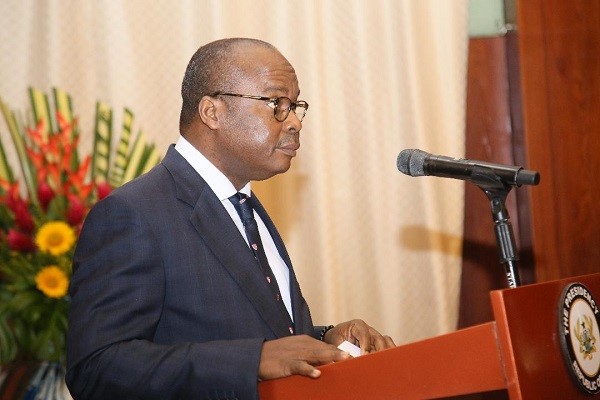Commercial banks have signalled an appetite to ease their stance on credit to the private sector, the latest credit condition survey conducted by the Bank of Ghana has revealed.
Results from the survey indicate that in the coming months there is a potential increase in demand for credit; similarly, commercial banks are likely to soften their credit stance to households and firms.
This development, Dr. Ernest Addison – Governor and Chairman of the Monetary Policy Committee of the BoG – said, may translate into higher credit growth to support the ongoing recovery process.
Real private sector credit contracted marginally by 0.1 percent compared to a growth of 3.4 percent recorded over the same comparative period.
“Private sector credit growth has not fully recovered to pre-pandemic levels due to lingering supply-side risk aversion from the shock of the pandemic, as well as slower-than-expected growth in demand for loans that are backed by bankable projects,” Dr. Addison said at the 102nd press briefing of the MPC on Monday.
“While credit to the private sector saw a marginal pick up, the trends remain below expectation largely on account of pandemic-related risk aversion. The COVID-19-related macro-prudential measures put in place by the Bank of Ghana will be maintained for the time being, to support a full recovery of economic activity,” the Governor assured.
New loans and advances by banks totalled GH¢21.6billion in the year to August 2021, marginally above the GH¢20.7billion for the same period in 2020. The Non-Performing Loans (NPL) ratio increased from 15.5 percent in August 2020 to 17.3 percent in August 2021, reflecting in part the general pandemic-induced repayment challenges as well as some bank-specific loan recovery challenges.
The latest stress tests conducted on the banking sector show that banks remained resilient under mild to moderate stress conditions, supported by the strong capital and liquidity buffers and the regulatory reliefs introduced during the pandemic.
With strong capital and liquidity buffers, commercial banks continue to increase their investments in high-yielding government securities to improve their earnings while moderating their credit risk due to uncertainties in the business environment.
Total assets increased by 16.7 percent to GH¢166.4billion as at end August 2021, driven mainly by a 28.0 percent year-on-year growth in investments to GH¢80.3billion. The Governor noted the trend of increased domestic financing of the deficit (driven by high-yielding government paper held largely by banks) is crowding out credit to the private sector.










